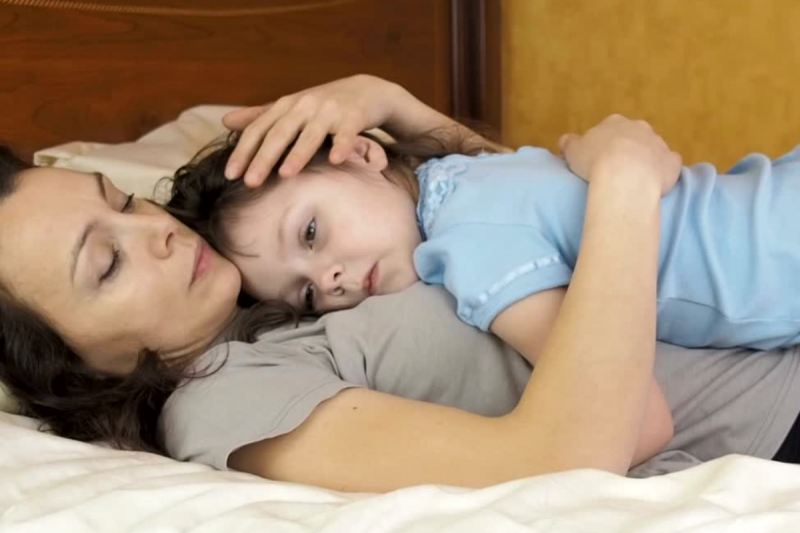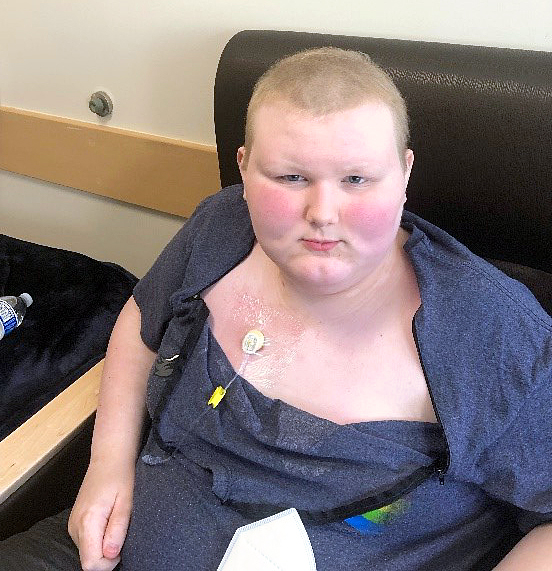
Compassion fatigue is a natural consequence of stress and is common among those caring for cancer patients. Caregivers can become drained of emotional energy when they feel, see and address the pain and trauma of others. Learn how to identify compassion fatigue to find relief from your symptoms and maintain your well-being as you play the very important role of caregiver.
Compassion fatigue begins with exposure to a traumatic event or a major disruption in one’s life, such as a childhood cancer diagnosis. When a parent hears the words ‘child’ and ‘cancer’ in one sentence, it’s natural that stress and fear immediately enter the picture. “How are we ever going to get through this?” You’re faced with an overwhelming reality of appointments, traveling, testing, medications, and new demands on your time, resources and emotional health. The mountain you face, coupled with stressors and demands of everyday life, quickly evolves into caregivers putting their own needs last. As you care for others, you forget to take care of yourself.

Just like your grandma, we’re rooting for you Jacob!
Compassion fatigue looks like (but is not limited to): irritability, sleep disturbance, changes in behavior, a change in identity and belief, loss of hope, growing anger and the continual burden by the weight of it all. Everything feels increasingly difficult. If you are a caregiver who is experiencing a good deal of stress, it’s not uncommon to feel exhausted and physically and mentally drained. Everyone is impacted by a cancer diagnosis differently and responds to stress in their own way. We encourage you to listen to your own needs closely. It’s important to take time to care for yourself. Develop the coping strategies that work for you.
Martha is a caregiver for her grandson, Jacob, a 13 year-old boy diagnosed with leukemia. Martha started feeling tired and mentally drained and realized she was not taking care of herself. When asked how she handles feelings of compassion fatigue, she said she focuses on the positives – how she is supporting her grandkids and how they are coming together to help her. Martha stated that she tries not to lose herself in negative thought; it’s not healthy. Her advice to others experiencing compassion fatigue is “Try to stay positive and take care of yourself. You have to take care of you to take care of them. Don’t lose yourself in the bad moments because that will only make it harder. We got this.”
Staying positive and hopeful is a great way to cope with compassion fatigue. Other tips for managing symptoms include:
- Find someone to talk to
- Exercise or meditate regularly
- Eat a balanced diet
- Take time for yourself every day
- Spend time on hobbies or interests
- Have a good sleep routine
- Ask for help
Compassion fatigue is common and there are resources available if you need help. American Cancer Society provides information on treatment and support programs. Children’s Brain Tumor Foundation has online groups and educational materials for caregivers experiencing compassion fatigue, and the NCCS has also created a Facebook Childhood Cancer Support Group, which offers a compassionate place to connect and find encouragement.
Remember, you’re never alone. And caring for you leads to better care for them.

